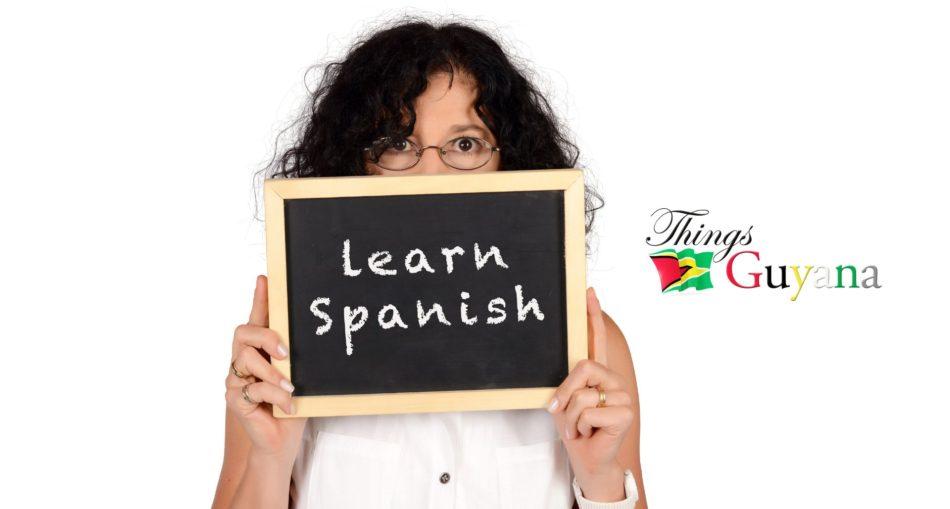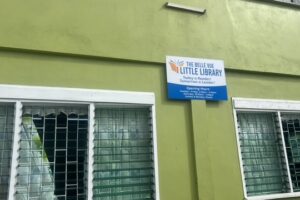Learning to speak Spanish can be both practical and fun for Guyanese. Over the past few years, Guyana has been experiencing a high influx of migrants from Venezuela and Cuba. Venezuela has been experiencing a significant migration crisis in recent years, with millions of citizens leaving the country due to economic, political, and social instability. As a result of these factors, millions of Venezuelans have been forced to leave the country in search of better living conditions. Many have gone to neighboring countries such as Guyana, Colombia, Ecuador, and Peru, while others have gone further afield to places like the United States, Canada, and Spain.
According to HIAS (the world’s oldest refugee agency, see https://hias.org/where/guyana/), more than 30,000 Venezuelans, more than half of them women, live in Guyana. Guyana has several legal entry points (Kumaka, Charity/Parika, Georgetown, and Lethem), which Venezuelans access on a daily basis to enter Guyana.
In addition to the high influx of Venezuelans, there are also a growing number of Cubans living and working in Guyana. Cuba has been providing medical assistance to Guyana and has also sent doctors to work in the country. At many public health centers in Guyana, your attending doctor could be Cuban. According to the Guyana Chronicle (https://guyanachronicle.com/2018/09/16/cubans-starting-families-in-guyana/), there is a growing Cuban population in Guyana.
The migrants are here for a better life, and they offer themselves to the local job market. Incidentally, many store owners in Georgetown have hired these new migrants. In many retail and wholesale stores in Regent Street (a popular shopping district in Georgetown), you are certain to find a few Spanish-speaking migrants.
This growing influx of Spanish-speaking migrants to Guyana makes it relevant for Guyanese to want to learn to speak Spanish.
Spanish as a Second Language
The Spanish language, also known as Castilian, originated in the Iberian Peninsula in the 9th century. It evolved from Vulgar Latin, the everyday language spoken by the people of the Roman Empire, and was heavily influenced by the Celtic and Iberian languages that were already present in the region.
During the medieval period, the Spanish language began to develop and split into dialects, with the Castilian dialect becoming the dominant form. This dialect was spoken in the region of Castile, located in central Spain, and was eventually chosen as the official language of the country by King Alfonso X of Castile in the 13th century.
In the 15th and 16th centuries, Spanish became the language of the global empire as Spain colonized Central and South America, parts of Africa, and the Philippines. The Spanish language spread to these colonies and took on influences from the indigenous languages and cultures.
During the 19th and 20th centuries, Spanish underwent a process of standardization and modernization, with the Royal Spanish Academy (Real Academia Española) established in 1713 to establish official rules of grammar and spelling.
Today, Spanish is the official language in Spain and 21 countries in Latin America and is widely spoken as a second language in many other countries around the world. It is also one of the six official languages of the United Nations.
5 Reasons for learning to speak Spanish
Communication
Spanish is spoken by over 460 million people worldwide and is the second most spoken language in the United States, making it a valuable skill for communication and business.
Career opportunities
Knowing Spanish can open up a wide range of career opportunities in fields such as education, healthcare, international business, and government.
Cultural Enrichment
Spanish is the primary language of Spain, Mexico, and many other Latin American countries. Learning the language can provide a deeper understanding and appreciation of the rich cultures of these regions.
Educational opportunities
Spanish is one of the most commonly taught languages in schools and universities, so knowing it can open up educational opportunities in many subjects.
Travel
Spanish is widely spoken in many countries around the world, making it a useful language for travel. Knowing Spanish can enhance the travel experience and facilitate communication with locals.
Personal growth
Learning a new language can improve cognitive abilities and enhance problem-solving skills, making it a valuable tool for personal growth and development.
7 Ways of learning Spanish
There are many ways to learn Spanish, including:
- Traditional classroom instruction: Taking a Spanish class at a school or language institution is a traditional and effective way to learn the language. Classes typically involve grammar instruction, conversation practice, and cultural lessons.
- Online courses: Online Spanish courses offer flexibility and convenience, allowing learners to study at their own pace and on their own schedule.
- Language exchange programs: A language exchange program connects learners with native Spanish speakers for conversation practice and cultural exchange (See https://www.mylanguageexchange.com/Country/Guyana.asp).
- Immersion programs: Immersion programs involve living in a Spanish-speaking country for an extended period of time, which allows learners to fully immerse themselves in the language and culture.
- Self-study: Self-study involves using resources such as language learning apps (like Duoling: https://invite.duolingo.com/BDHTZTB5CWWKTBMOAHSP5EQLM4?v=if), textbooks, and audio programs to teach oneself Spanish.
- Private tutoring: Private tutors can provide personalized instruction and feedback to help learners progress quickly.
- Practice with native speakers: Practice speaking Spanish with native speakers is an essential way to improve speaking and listening skills.
Ultimately, the best way to learn Spanish will depend on the individual learner’s needs and preferences. It’s important to find a method that is engaging and enjoyable and that fits with the learner’s schedule and lifestyle.







